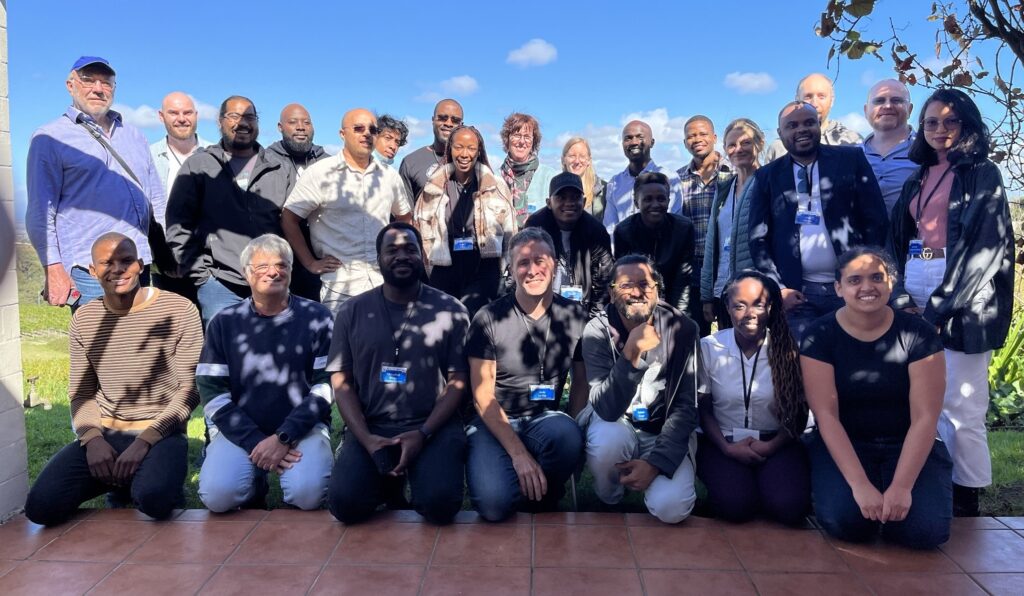How will ChatGPT and other large language models (LLMs) change education, academia and data science and what are the threats and opportunities that LLMs present for Africa. These were some of the questions explored at the LLM workshop organised by Prof. Bruce Bassett (AIMS South Africa/UCT/SAAO) and held from 26 to 30 March 2023 at Zevenwacht Wine Estate.
There were 27 participants (including 9 women) representing 8 African countries. Participants included alumni from the Data Science Intensive (DSI) Programme, MSc and PhD students, university professors and representatives from various industries. Dr Alexandra Birch (Associate Professor) in Natural Language Processing in the Institute for Language, Cognition and Computation (ILCC), School of Informatics, University of Edinburgh, gave the keynote address.
Participants generated 39 potential LLM projects to work on during the workshop. Topics covered building an MVP (Minimum Viable Product) for a service or App; Speeding up Workflows – use ChatGPT to help write code for a research project or challenge; Understanding LLMs – explore some aspect of LLMs to understand them better. 9 projects were presented on the final day.
Projects ranged from investigating whether LLMs can think for themselves, streamlining operations by using ChatGPT to build an app that could summarise work tickets as text and audio as well as reviewing large sums of data to investigate issues and supply suggested solutions based on previous work tickets. Investigating whether ChatGPT is capable of tracking topics and atomic pieces of information and then summarising it into a valuable and informative summary of informationally dense content. Comparing ChatGPT’s reasoning capabilities under different conditions and languages. Investigating whether ChatGPT can be used to create automated personalised tutoring or whether it can generate a new language using a signature language. Using chatGPT as a personal assistant to help developers translate codebases into languages they understand and optimise code runtimes and exploring GPT3.5’s cross-lingual latent space.
Results were varied across all projects, some were more successful than others but overall it was concluded that GPT-4 was a big improvement on previous releases, however CHATGPT is fragile and tricky to work with and users need to be expert handlers as prompting is critical. One thought was perhaps specialised variants would be created, similar to how humans specialise into specific fields.
The workshop sponsors were the UK – South African Newton Fund, SARAO and the South African Development in Africa with Radio Astronomy (DARA) BIG DATA AFRICA Programme and done in collaboration with AIMS South Africa and Grailabs.

